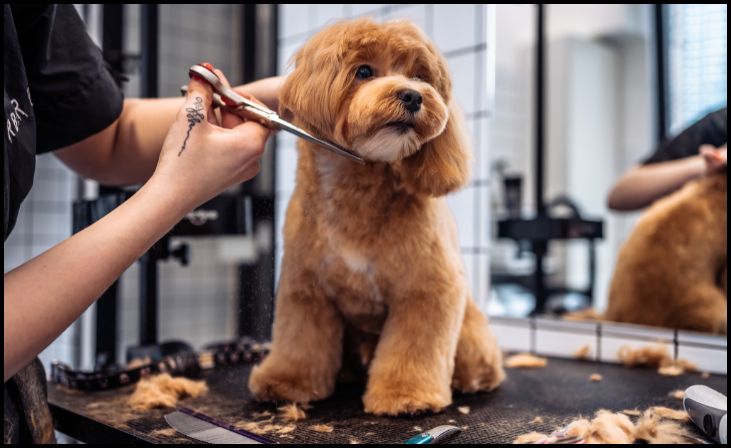Welcoming a new pet into your home is an exciting and rewarding experience, but it also comes with a significant responsibility for pet care. For first-time pet owners, understanding the essentials of pet care is crucial to ensuring your furry friend’s health, happiness, and well-being. This comprehensive guide will cover eight key aspects of pet care, providing you with the knowledge and tools you need to become a confident and competent pet parent. Additionally, we’ll explore the importance of exercise, training, and socialization to ensure your pet is well-adjusted and thriving. Whether you’re adopting a playful puppy, a curious kitten, or another type of pet, these guidelines will help you navigate the initial stages of pet ownership with ease.
What Should You Feed Your New Pet?
Choosing the right food for your pet is crucial for their health and development. Consult with your veterinarian to determine the best diet based on your pet’s age, breed, and any specific health concerns. High-quality pet food should provide balanced nutrition, including proteins, fats, carbohydrates, vitamins, and minerals. Avoid feeding your pet human food, as it may lack essential nutrients and could be harmful to their digestive system.
How Do You Ensure Your Pet’s Safety and Comfort?

Create a safe and comfortable environment for your pet by pet-proofing your home. Eliminate any possible risks, including tiny things that might be eaten, poisonous plants, and electrical cables. Give your pet a comfortable bed or kennel so they can sleep through the night. Ensure they have access to fresh water at all times and a clean litter box for cats or appropriate outdoor toileting area for dogs.
What Basic Health Care Does Your Pet Need?
Regular veterinary check-ups are essential to monitor your pet’s health and catch any potential issues early. Keep up with vaccinations as recommended by your vet to protect your pet from common diseases. Maintain a grooming routine that includes brushing their coat, trimming their nails, and cleaning their ears to prevent infections. Additionally, invest in flea and tick prevention products to keep parasites at bay.
Comprehensive Guide to Pet Care For First-Time Owners
Selecting the Right Pet

For every first-time owner, selecting the correct pet is an essential first step. Think about your living arrangements, way of life, and the length of time you can commit to a pet. Pet demands differ; dogs, for example, need constant exercise, company, and training, while cats are more self-sufficient but still need mental and physical stimulation. It may be more appropriate to keep tiny animals like hamsters or birds if you have a hectic schedule or limited room.
Read also – 10 Health And Happiness Tips For Dogs
Preparing Your Home
The next stage is to prepare your house after selecting the ideal pet. Removing any possible risks from your home, including as tiny things that might be ingested, poisons, and dangerous plants, is part of pet-proofing. Assemble a space just for your pet and fill it with everything it needs, such as toys, blankets, food and water bowls, and cat litter boxes. Assemble a cozy and secure space for your pet to feel protected.
Understanding Nutrition
An essential component of your pet’s health and wellbeing is proper diet. It’s crucial to provide your pet a balanced diet appropriate for their age, breed, and overall health since various dogs have varied nutritional requirements. To find out the ideal kind of food and serving quantities, speak with your veterinarian. Steer clear of giving your pet table scraps or potentially hazardous items like chocolate, onions, and grapes. There should always be access to fresh water.
Regular Veterinary Care
In order to keep your pet healthy, regular veterinarian treatment is necessary. Not too long after bringing your pet home, make an appointment for an initial examination and set up a vaccine and preventative care regimen. It is essential to have yearly veterinary appointments for regular examinations, vaccines, and dental examinations. Over the course of their first year, puppies and kittens may need extra visits.
Grooming and Hygiene

Grooming and hygiene are important aspects of pet care that contribute to your pet’s comfort and health. In addition to keeping your pet clean, regular grooming lowers their risk of infections and skin diseases. This includes washing, brushing, and clipping their nails. Depending on your pet’s breed and coat type, grooming should occur more often. In contrast to short-haired pets, which need less regular grooming, long-haired dogs and cats may need daily brushing to avoid matting.
Exercise and Mental Stimulation
Exercise and mental stimulation are essential for your pet’s physical and psychological well-being. Dogs need daily walks, playtime, and activities that challenge their minds, such as training sessions and puzzle toys. Different breeds have varying exercise needs, so tailor the activities to your dog’s specific requirements. Cats benefit from interactive play, climbing structures, and toys that stimulate their hunting instincts.
Training and Socialization
The behavior and growth of your pet depend heavily on their socialization and training. Initiate early training by using positive reinforcement methods to impart fundamental directives and polite behavior. Consistency and patience are key. For dogs, crate training, housebreaking, and obedience training form the foundation of a well-behaved pet. Socialization is equally important; expose your pet to different environments, people, and other animals to build their confidence and reduce fear or aggression.
Building a Bond and Routine

Building a strong bond with your pet is essential for a harmonious relationship. Spend quality time with your pet through play, training, and cuddling. Establishing a consistent routine for feeding, exercise, and rest helps your pet feel secure and understand what to expect. Positive interactions and communication strengthen the bond and make it easier to manage any behavioral issues. Be patient and understanding, especially during the adjustment period.
For More – Top 10 Essential Supplies Every New Pet Owner Needs
Conclusion
In conclusion, becoming a pet owner is a journey filled with joy, love, and dedication. By following this comprehensive guide, you can ensure your new pet receives the best care possible. From choosing the right pet and preparing your home, to maintaining their health with proper nutrition, grooming, and veterinary visits, each step is vital. Remember, exercise, training, and socialization are key to a well-rounded and happy pet. As a first-time owner, your commitment to understanding and meeting your pet’s needs will foster a strong bond and provide a loving, safe environment.
FAQs
How often should I feed my new puppy or kitten?
Puppies and kittens typically need to be fed more frequently than adult pets. Aim for 3-4 small meals a day for puppies and 2-3 meals for kittens, adjusting portions according to their age and size.
What vaccinations does my pet need?
Vaccinations are essential for defending your cat against prevalent illnesses. Your veterinarian will recommend a vaccination schedule based on your pet’s species, age, and lifestyle.
How should I socialize my new pet?
Socialization is essential for pets to become well-adjusted and confident. Introduce them to various people, animals, and environments gradually and positively reinforce calm behavior.



